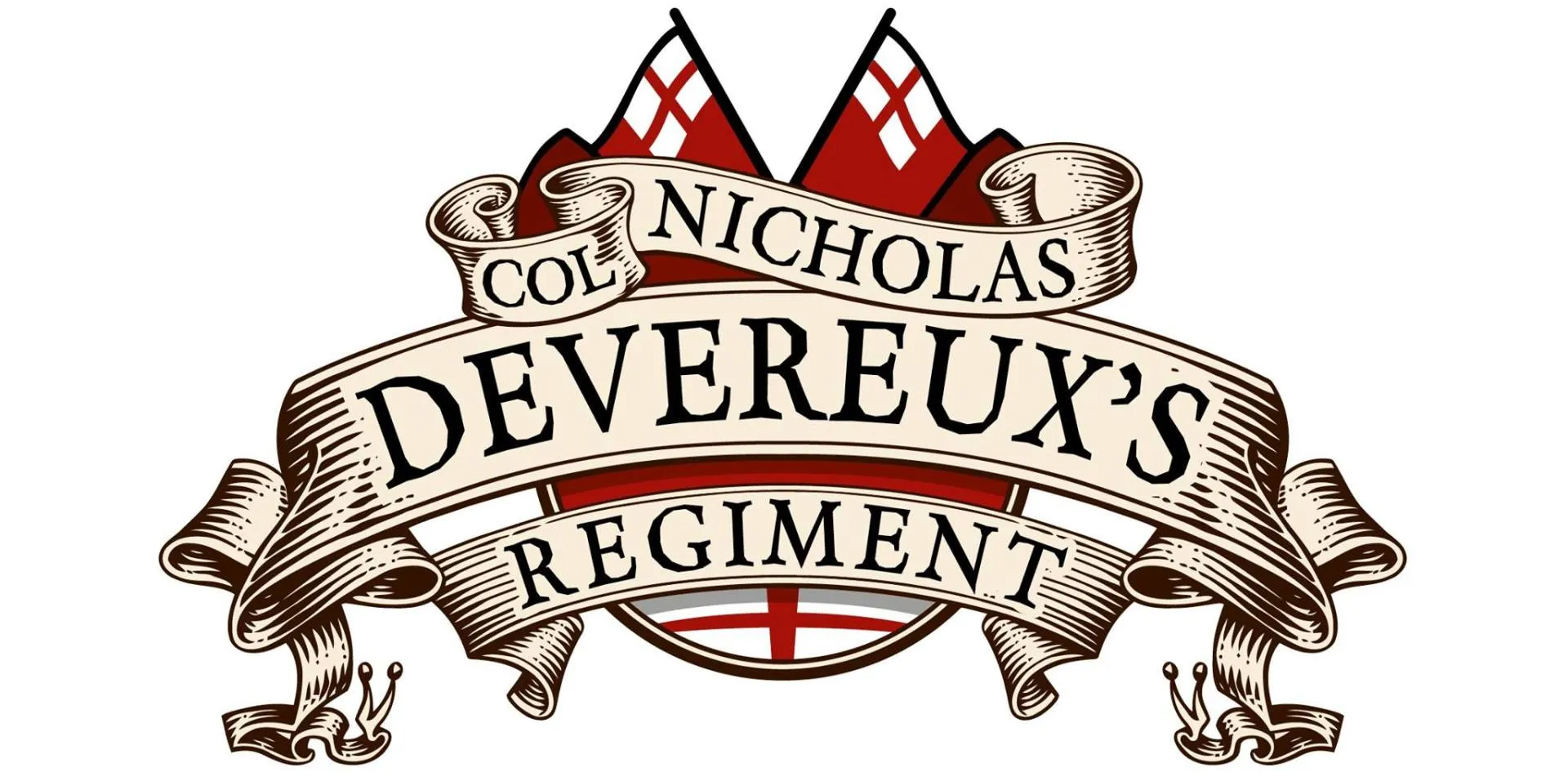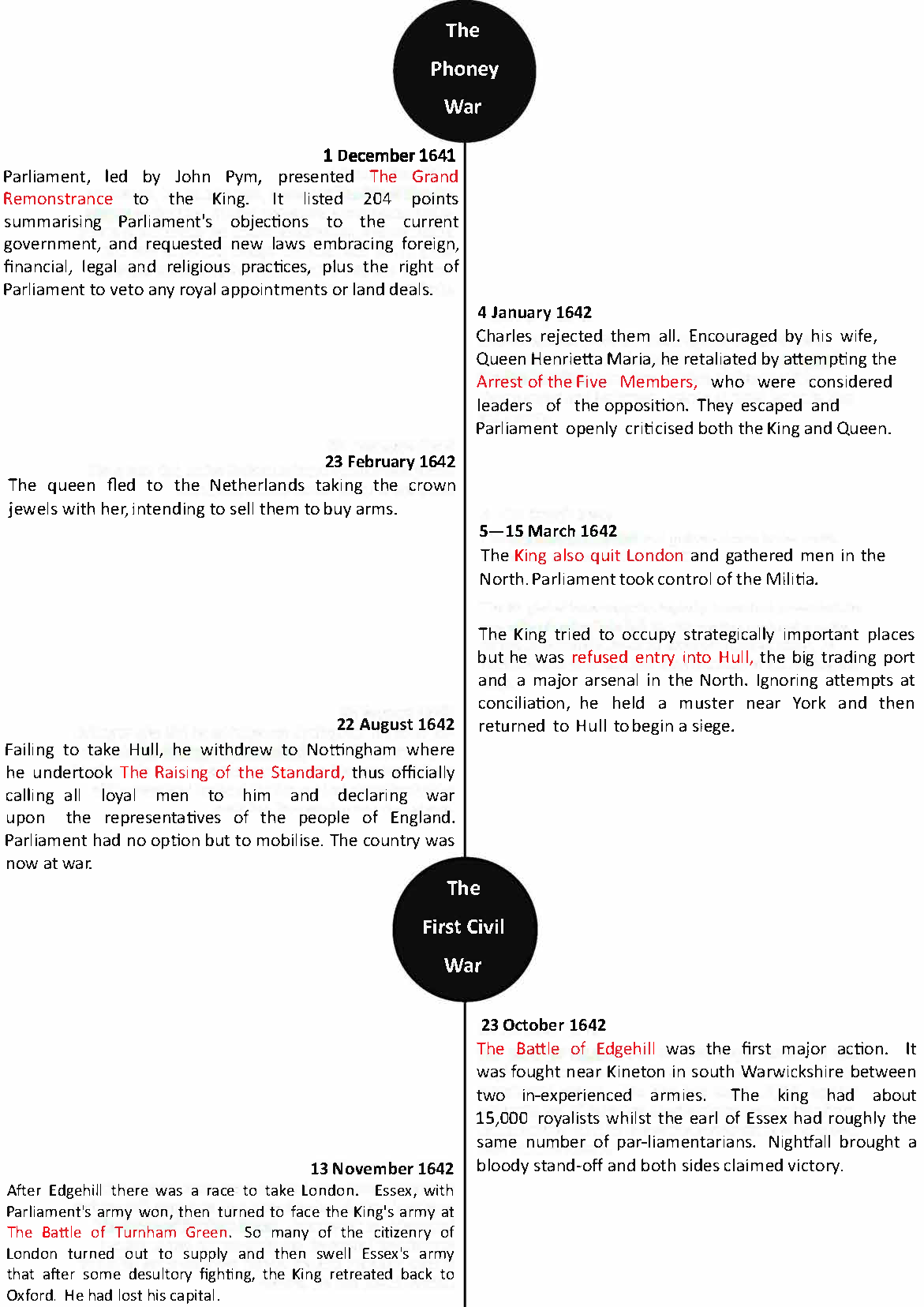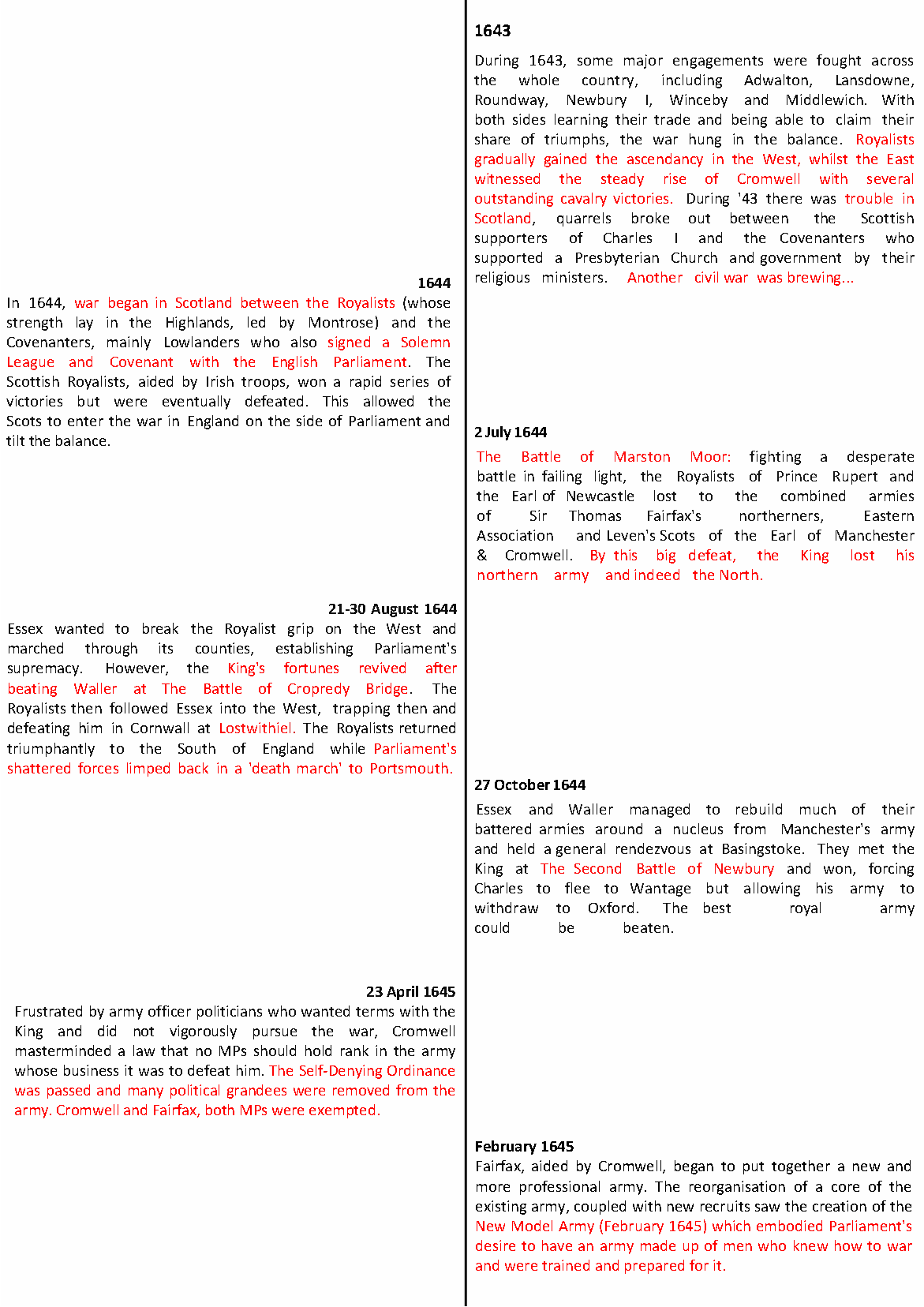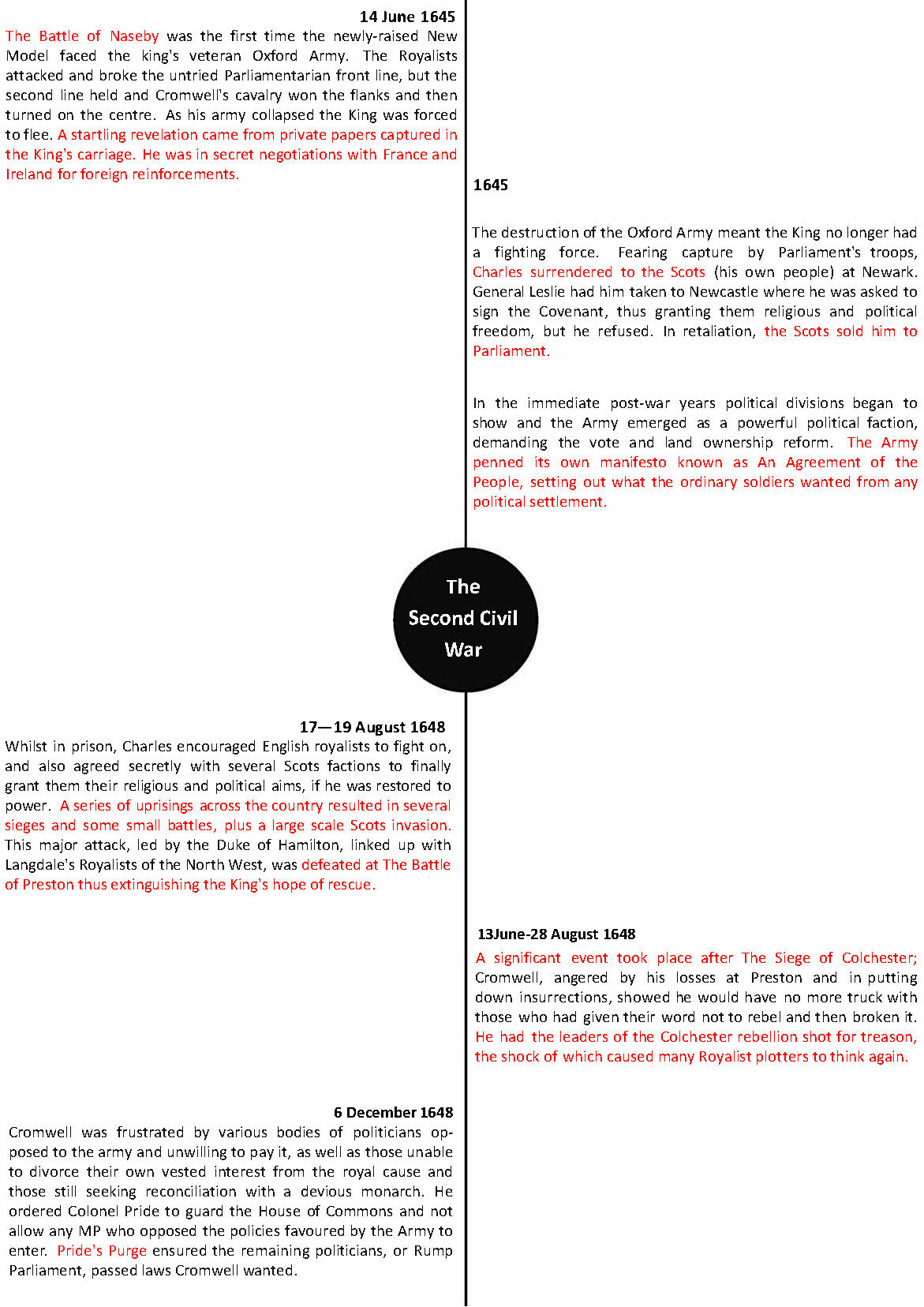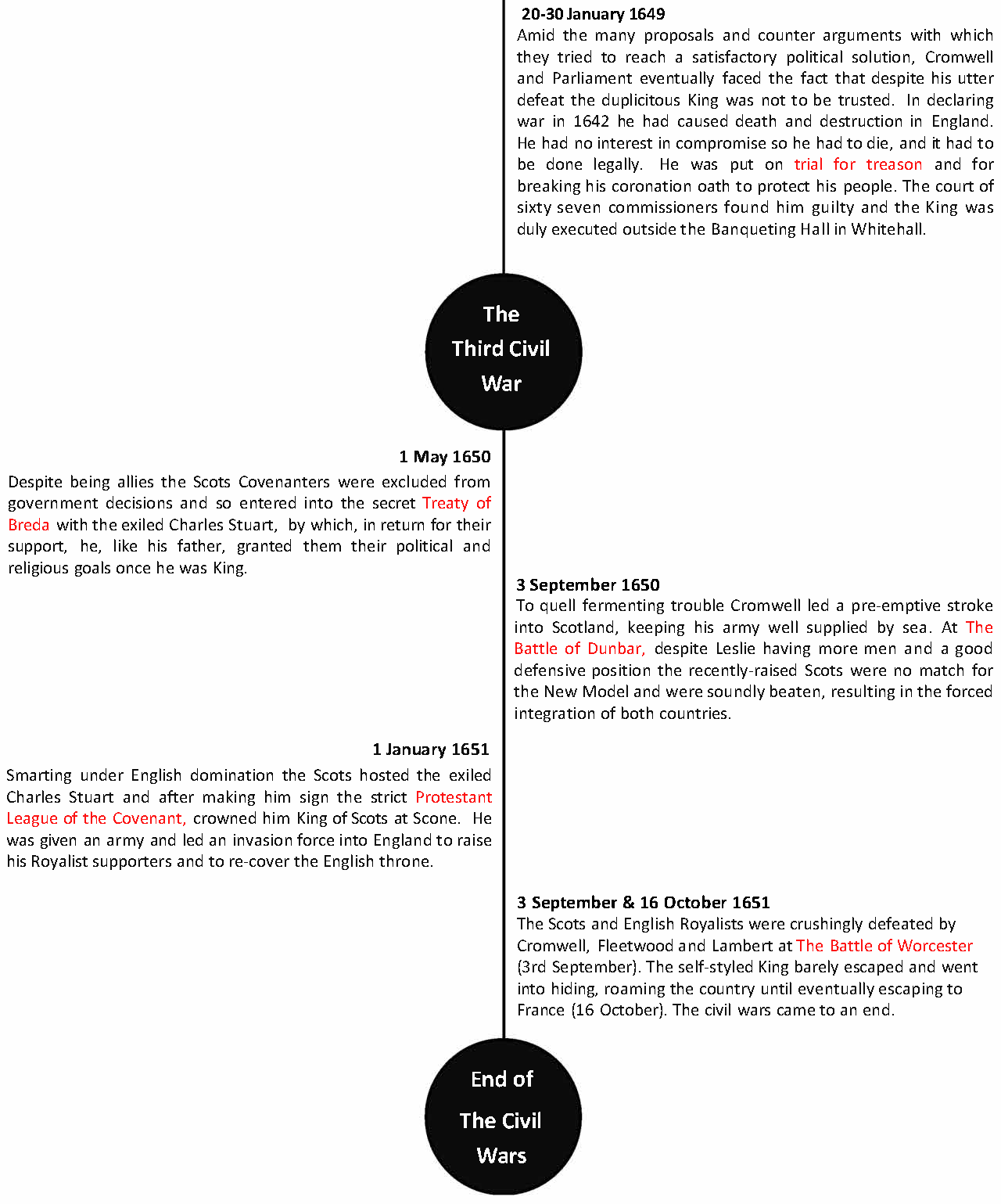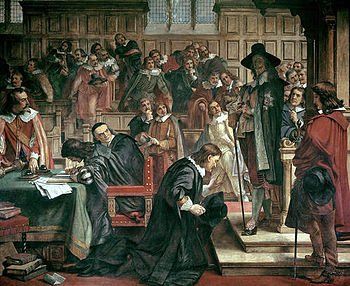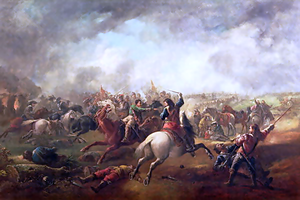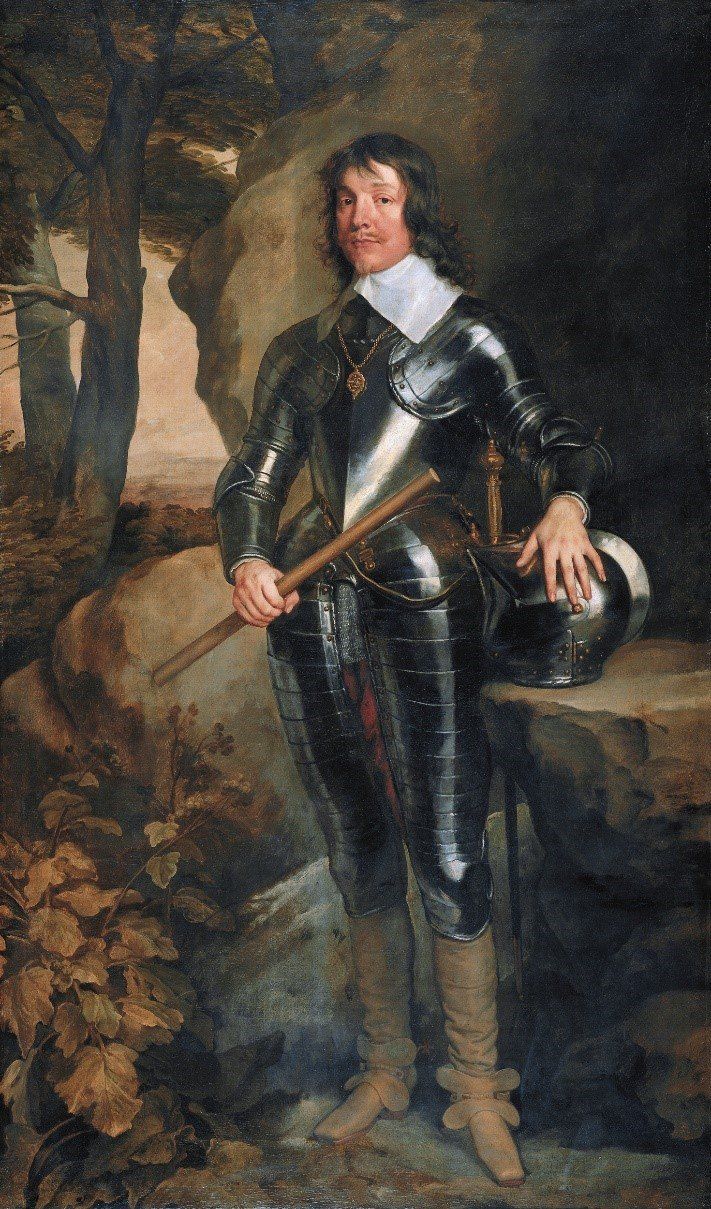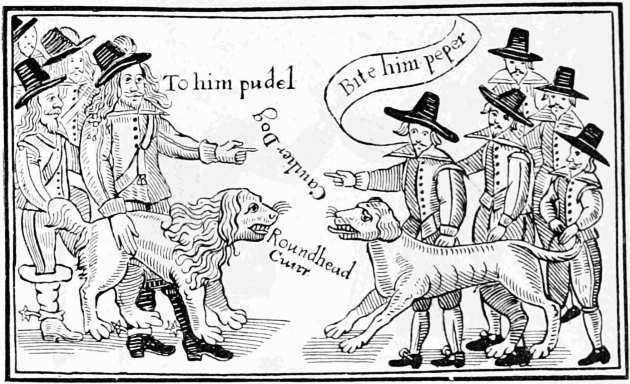A Brief History of the English Civil Wars
A Brief History of the English Civil Wars
Calling the events that unfolded between 1641 and 1651 the English Civil War is not exactly
correct. Fighting took place in
all four
nations: England, Scotland, Wales & Ireland. There were actually
three
identifiable wars...
Background...
King Charles I and Parliament quarrelled over who should govern the country. The royal argument, based in Faith and the Divine Right of Kings, was that the monarch was appointed directly by God to enact His will on Earth and thus, speaking through his Council and his priests, the King's government spoke with the authority of God. Parliament and several religious bodies denied this and argued for rational thought, democracy and the freedom of religion. Faced with such opposition Charles tried to rule by himself with an advisory Council of aristocrats and bishops for eleven years, but this wrecked the economy, gave rein to unfair taxation, profiteering, corruption, harsh repression of critics and flagrant abuse of the law; all fermenting civil unrest. In 1640 Charles, virtually bankrupt, needed money from Parliament to pay his debts and for his war against Scotland which had gone disastrously awry. It was refused unless he called regular Parliaments and agreed to a list of reforms which favoured Parliament's view of government. Further conflict was inevitable.
After the Wars...
Fairfax had quarrelled with Cromwell over the execution of the king and withdrew from active politics, leaving Cromwell to manage the business of government and mediate between increasingly hostile factions in both the House and the Army. In 1653, irritated by its self-serving interests and slowness in developing solutions for the Commonwealth, Cromwell disbanded the Rump Parliament. In the process, he refused the crown but was proclaimed Lord Protector. History documents that he did a good job governing the country, steering it through war with the Dutch and helping Portugal gain independence, although he still faced opposition in England and especially in Ireland. He died of malaria in 1658. What happened next, and the move towards the Restoration of the Monarchy, is another story.
NB: This aims to provide a simplified uncomplicated timeline of the wars. For almost every aspect here you can read more detailed publications exploring the battles, people, philosophy and politics. Ours is a fascinating period which should give you hours of endless fun digging for information and viewpoints.
